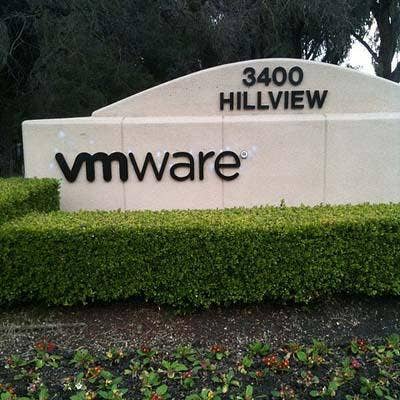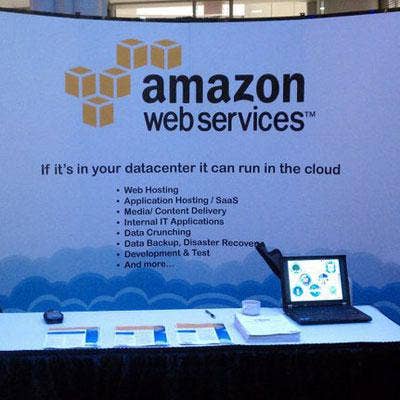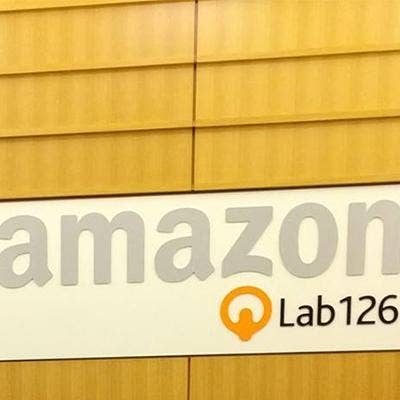5 Topics Partners Want Addressed At AWS Summit

Amazon Storms San Francisco
Amazon Web Services is sending its heavy hitters down south to San Francisco this week to the latest event in its AWS Summit series.
The San Francisco summit, running April 18 - 19, is intended to educate customers and partners about the AWS platform. But with Amazon CTO Werner Vogels (far left) delivering a morning keynote Wednesday, and AWS CEO Andy Jassy taking the stage later that day for a fireside chat, there will be plenty of chances for juicy nuggets of information to spill.
Will Amazon update partners on the status of upcoming offerings like the one stemming from its partnership with VMware, or the progress of those already released like AWS Managed Services? Maybe those AWS leaders will even let slip an acknowledgement of rumored products, like an office productivity suite. Will they try to do any damage control after an embarrassing recent outage?
These are some of the questions AWS partners look forward to having answered.

VMware When … And For How Much?
Last October, with much fanfare, AWS' Jassy joined VMware CEO Pat Gelsinger to reveal a collaboration that could have a profound impact on the industry: VMware Cloud for AWS.
But since then, the anticipated joint product linking services of the largest public and private cloud vendors essentially has been in stealth mode.
Several partners told CRN they are anxious to know the exact release date and pricing of the service.
VMware Cloud for AWS is unique because it will run the vSphere environment on dedicated servers in Amazon data centers, instead of sharing a multi-tenant environment like just about every other piece of software hosted by AWS. Now that VMware has sold off the remnants of vCloud Air, that product is the virtualization vendor's only true public cloud story.
"I've heard very little but would be super interested to see how that looks in practice and whether it can accelerate mass migrations," said one partner.

Managed Services Mysteries
CRN first reported a year ago about Amazon's secretive Sentinel project. The product was finally delivered in December as AWS Managed Services — a toolkit for enterprises to manage their AWS infrastructure, including some services directly from Amazon engineers.
Partners delivering managed services were concerned such a product could step on their toes and create channel conflict. For that reason, they are interested in hearing an update on early adoption — what kind of companies have been leveraging the product and did any MSPs lose business as a result?
"My gut says the managed services offering will take nine to 24 months to have a visible impact in the market," said one partner, who asked not to be identified. "It's not straightforward to deliver."
That partner expects the product to have the biggest impact on traditional hosting companies and IT outsourcers.
Another partner told CRN there's no sign of a threat to its MSP business.
"In the first week or two of the announcement, a few customers asked a few questions about AWS Managed Services, but then [interest] died off," the partner said.

Outage Aftermath
Amazon Web Services has built a reputation for reliability, but a storage outage on Feb. 28 triggered by a faulty command cast a pall on the public cloud provider. The larger you are, the more critical web services you take out when you fall.
Will Vogels or Jassy mention that bleak day and the avalanche of bad press it set off?
AWS, for its part, did already apologize for the four-hour outage -- which was sparked by an AWS team member entering a bad command during the debugging of an S3 billing system -- and disclosed "several changes" including a move to run the Service Health Delivery dashboard across multiple AWS regions. "We understand the SHD provides important visibility to our customers during operational events and we have changed the SHD administration console to run across multiple AWS regions," the company said.

Office Productivity Admission?
Amazon has never publicly addressed this one, but according to reporting from tech news site The Information, AWS is developing office productivity software to compete in the SaaS market against rivals Microsoft and Google.
Is it possible Vogels or Jassy will confirm such a product is in the pipeline, or tease the features it will deliver?
Partners say they have heard little about the Microsoft Office 365 and Google G Suite challenger and, while they are interested in learning more, they don't expect to anytime soon.

Connecting With Partners
Now that AWS is ready to disrupt the contact center with the upcoming Amazon Connect, partners would like to hear more about the market opportunities that product will create for Amazon's channel.
Amazon said the new Amazon Connect self-service, cloud-based contact center service can be set up in as little as a few minutes using the AWS Management Console, unlike other contact service systems that it called "complicated and expensive" and take months or even years to implement.
Amazon's entrance into the contact center/customer service system market is likely to have a major disruptive effect on IT vendors, customer center service providers and other companies that compete in this space, partners said.
"AWS Connect is a tremendous opportunity," one partner told CRN.